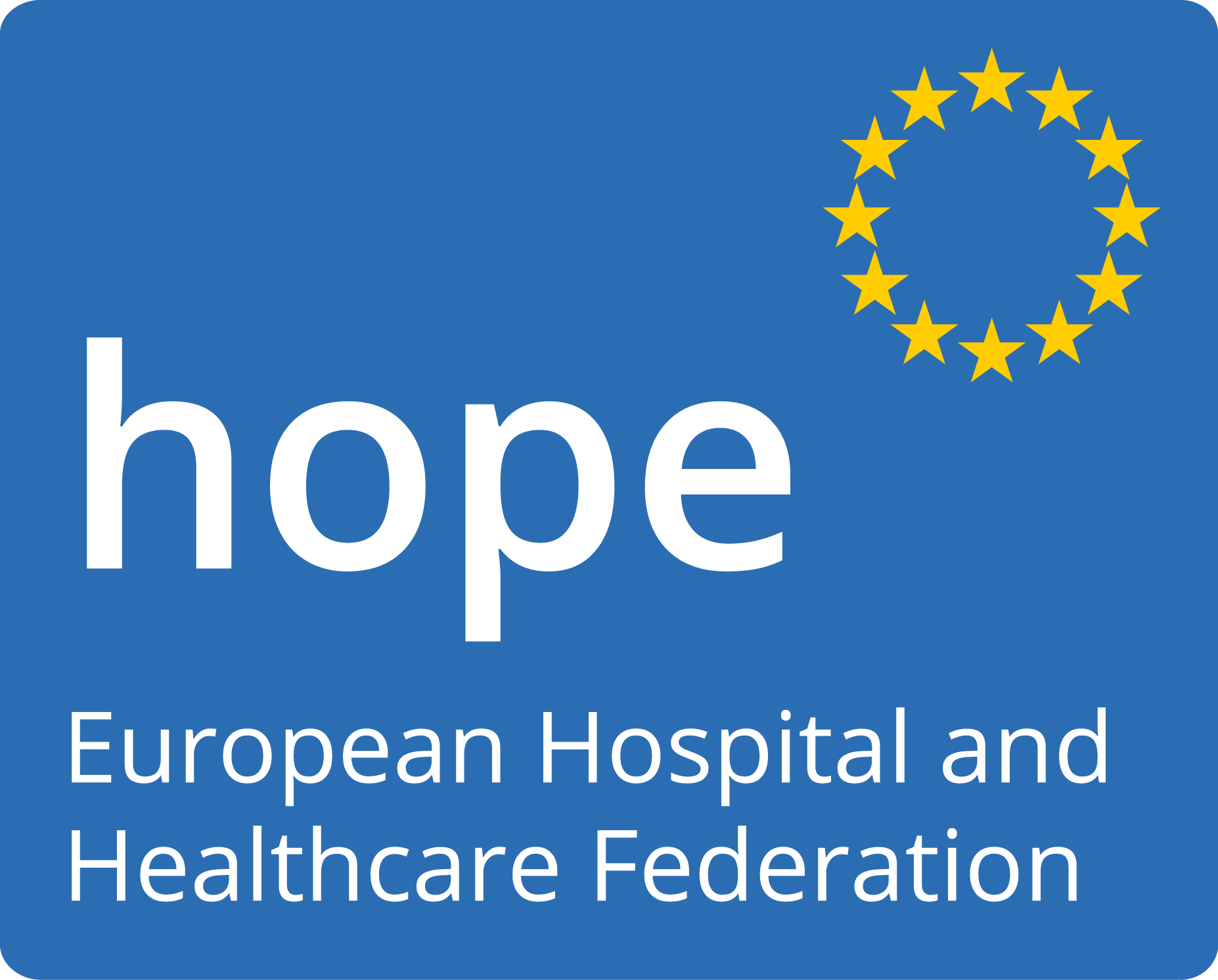HOPE promotes improvements in the health of citizens throughout Europe
HOPE promotes improvements in the health of citizens throughout Europe, fostering efficiency, effectiveness, and humanity in the organisation and operation of hospital and healthcare services. Two major goals have been set up in HOPE since its creation: to develop and maintain information and to advise members.
Comparative activity
HOPE is involved in numerous comparative, exchange and dissemination activities such as: economic and financing issues; human resources; organisation of care and health system.
Working Areas
With the development of the internal market the influence of EU legislation on hospitals and healthcare services increased and since then HOPE is also involved in the European Union decision making process. The scope of influence ranges from human resources issues, pharmaceuticals, medical devices, information technologies (eHealth), tissues, cells, blood, organs, etc.
European Projects
HOPE participates to projects funded by European Commission on several aspects of health and all related to hospital activity.
General Report on the Activities of HOPE
Every year HOPE produces a general report on its activities. The reports of the last years can be downloaded below. Reports from previous years may be requested by email to sg@hope.be.
Position papers
HOPE prepares position papers and replies to consultations through which it expresses its view towards EU policymakers and to act as a principal source of advice on hospital and health affairs.
HOPE Updates
HOPE produces a regular e-newsletter which focuses on work in progress and relevant developments at EU level.
HOPE Agora Reports
Every year, the Exchange Programme focuses on a different topic. At the end of the Programme, all participants are invited to share their experiences during the HOPE Agora. HOPE Central Office is in charge of collecting these evidences in the HOPE Agora Report.
Comparative key figures
Hospital expenditure on total health expenditure
Acute beds occupancy rate
Rate of physicians working in hospitals
The share of health expenditure devoted to hospitals embraces expenditure in establishments primarily engaged in providing medical, diagnostic and treatment services that include physician, nursing and other health services to in-patients and the specialised accommodation services needed by in-patients. In 2016, the hospital expenditure as share of total health expenditure was 35%.
The occupancy rate for acute care beds mirrors how intensively hospital capacity is used, indicating the average number of days when beds in acute care hospitals were occupied as % of available 365 days. In the 28 European Member States the occupancy rate for acute beds was on average 77% in 2014. This figure has been relatively stable since 80’s, decreasing by 1 percentage point in the last 20 years.
Statistical comparison of hospital staff is often limited. On one hand, this is due to the frequent lack of consistently-used measurement tools; on the other, this is linked to the development of outsourcing of auxiliary services (maintenance, catering, etc.) whose staff is no longer employed by the hospital, and thus no longer counted as hospital staff. In general, the most available and reliable data shows that in the last decade the greatest proportion of physicians in the European countries has been working in hospitals. In 2015, the rate of physicians working in hospitals (full or part-time) was approximately 50%-60% (Source: WHO).
